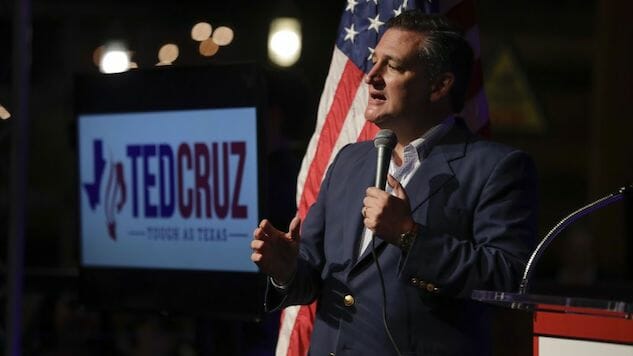The Nightmare in Texas Should End the Debate: Deregulation Always Fails
Photo via Getty
The complete failure of the power grid in Texas during the recent winter storms that swept the state cost millions of dollars in damage and came with a death toll that won’t be fully known for months. The utter failure of the system can be attributed almost entirely to a statewide process of deregulation beginning in 2004 that has required around 60 percent of Texas residents to buy their power through private companies, which comes at the expense of local utilities. The philosophy behind the move is of the core conservative variety, and is pitched publicly as a way to save money by turning public services and utilities over to the private sector, where the free market will lead to increased competition and lower prices. Implicit in these proposals is a mistrust of the government, which is usually painted as incompetent and bloated—something that is, by its nature, both bad and expensive.
Here’s how that turned out, per a study from Wall Street Journal:
Those deregulated Texas residential consumers paid $28 billion more for their power since 2004 than they would have paid at the rates charged to the customers of the state’s traditional utilities, according to the Journal’s analysis of data from the federal Energy Information Administration.
Oops! So much for the “let the customers shop around, it’ll be cheaper!” idea. Along with that gaudy $28 billion total, the WSJ found that customers who are forced into becoming customers of a private utility pay more than those using traditional utilities, and when this month’s crisis hit, so did surge pricing, with many residents now seeing enormous bills as the market price cap rose as high as $9,000 per megawatt hour. As the Times reported, one man owed $16,000 on his latest bill, and he wasn’t an anomaly—these were the “lucky” ones who didn’t lose power! Even in “normal” times, the difference has been stark:
From 2004 through 2019, the annual rate for electricity from Texas’s traditional utilities was 8% lower, on average, than the nationwide average rate, while the rates of retail providers averaged 13% higher than the nationwide rate, according to the Journal’s analysis.
This goes against the promises made by companies like Enron—yup, those guys—and George W. Bush when the initial push for deregulation was happening in the ‘90s. But you’ll never believe what happened: The lack of a public option for many consumers meant that the private companies could collude to raise prices (with an assist from the Republican government, who set laughable upper limits on pricing), and, more pertinently to the year 2021, they had no financial incentive to spend money on infrastructure that would protect the grid during…oh, I don’t know, let’s say a massive winter storm.
-

-

-

-

-

-

-

-

-

-

-

-

-

-

-

-

-

-

-

-

-

-

-

-

-

-

-

-

-

-

-

-

-

-

-

-

-

-

-

-








































